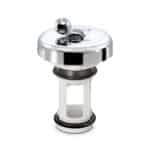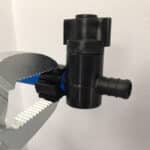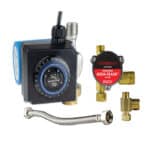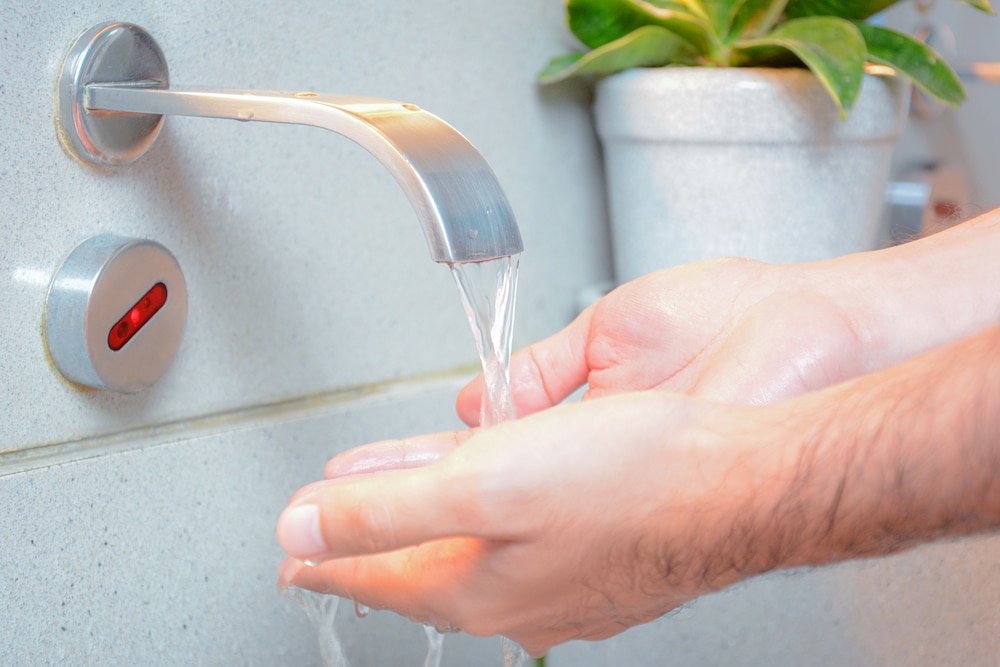
At some point, every homeowner or business will need the services of a plumber. Whether it’s to unclog a drain, stop a water leak, or install a tankless water heater —plumbers are in demand. Unlike many professions, plumbing is basically recession-proof. It is a $110 billion industry in which jobs are projected to grow 16 percent by 2026. Based on federal guidelines, plumbing is an essential operation that must be performed, even during the pandemic.
Typically, when people shop in the plumbing department, they encounter the usual and customary–faucets, toilets, water lines, and pipe putty. However, like most home improvement categories, Smart technology is changing the industry by creating demand for advanced products and services. Savvy consumers want creative solutions to their plumbing problems. However, they also prefer to purchase items that enhance their lifestyles.
In many cases, how our society functions and communicates is regulated by Smartphones and apps. Consumers expect more from their products than the basic essentials —they want convenience, comfort, and eco-friendly answers to their environmental concerns. Shoppers are becoming more demanding and selective about the products they purchase. However, their desire to own the “latest and greatest” hi-tech products has also sparked innovation within the plumbing industry.
Brain Pipes Think for Themselves
One of the most common problems for homeowners is leaking pipes. In fact, one in ten homes have small leaks in their plumbing systems that waste up to 90 gallons of water a day. Brain pipes detect leaks by monitoring the water pressure in fixtures and faucets. The monitoring system will locate the source of the leak, and send a message to the homeowner that identifies where the leak is located. It then shuts off the main water supply. When the app-based system senses a drop in water pressure, it sounds an alarm to alert the homeowner. Conservationists will appreciate the device’s ability to generate a monthly report that shows how much water is used in the home.
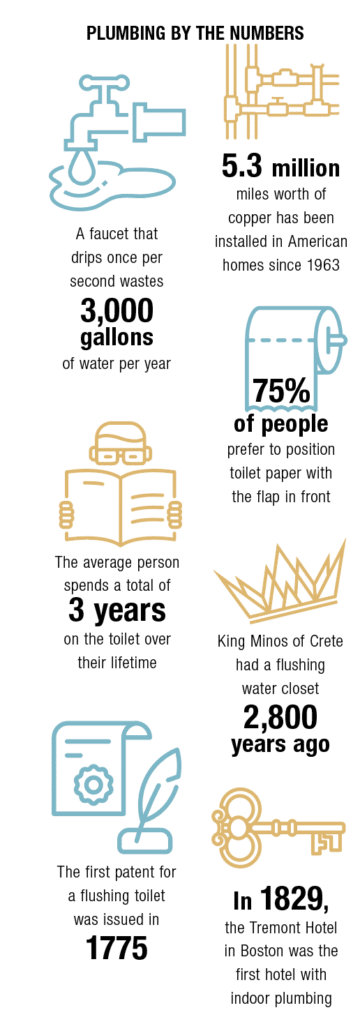
The Coronavirus has made cleanliness and health a high priority for consumers. Touchless faucets are functional and prevent the spread of germs by eliminating the need to operate faucets by hand. Some touchless faucets emit water with the wave of a hand, and others are voice-activated. Motion or voice-activated sensors precisely measure the amount of water that is dispensed to conserve resources.
Smart Toilets Bring the Heat
Customers can put away the rubber gloves, cleaners, and scrubbing brushes. Self-cleaning, low-flush toilets are one way to keep toilet bowls clean. It merely requires you to flush. Households equipped with low-flush toilets save 25 gallons of water per day, or 9,000 gallons a year. This is a big deal since restroom plumbing fixtures consume more than half of the water used in homes.
Smart Toilets are more advanced than self-cleaning toilets. The ultimate luxury, these toilets can do everything from playing music to warming the seat. Some have nightlights, and lids open and close automatically. In 2011, Kohler released the world’s first smart toilet at the cost of $6,400. Uses could adjust the lighting, and water temperature and listen to music from a built-in radio.
Tankless Water Heaters (on-demand)
The majority of water heaters in use today are the conventional storage tank model that has been manufactured for years. The newer tankless models are significantly smaller and can be as compact as a suitcase. Tankless water heaters are energy-efficient since they only produce hot water on-demand. It uses heated coils to deliver hot water quickly. However, tankless heaters are significantly more expensive than conventional water heaters. Other models becoming increasingly popular are:
Heat Pump Water Heater (Hybrid) saves money on electricity since it indirectly generates heat and hot water by transferring heat in the air and ground to heat up the water.
Solar-Powered Water Heaters draw energy from the sun. This model is the most efficient energy option because it converts solar energy into heat using roof-mounted panels.
Condensing Water Heaters are the best option for homes heated by natural gas. It generates hot water by converting heat from the natural gas exhaust system.
Water Purification Systems Improve Quality
Drinking clean water is something we once took for granted. However, due to the growing concern over chemicals and pollutants in our water supply, more people are buying water purification systems. Research indicates that 21 million people in this country depend on public water that does not meet minimum health requirements. Additionally, many homes have aging water pipes that affect the taste, odor, and safety of the water that flows through them.
Watch for New Trends
Customers are always curious about emerging trends and exciting new products. Practically every hardware store or home improvement center has a plumbing department. The product assortments can range from products for basic DIY projects to highly advanced Smart Devices. Building relationships with local plumbers can help increase sales in the department and connect retailers to other contractors in the construction and home maintenance industry.

